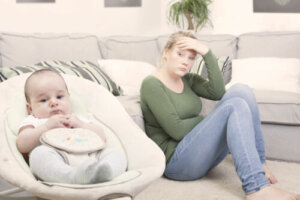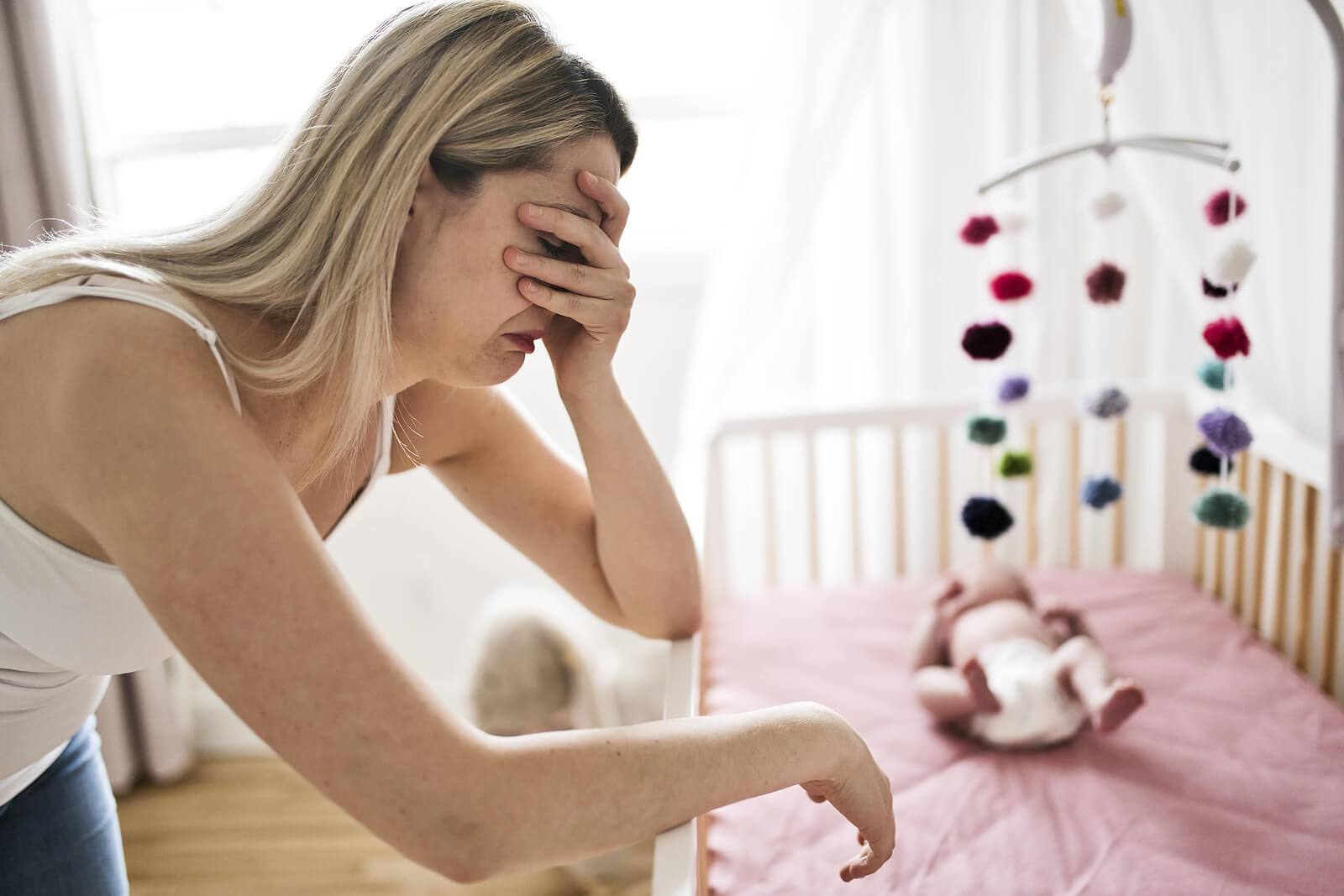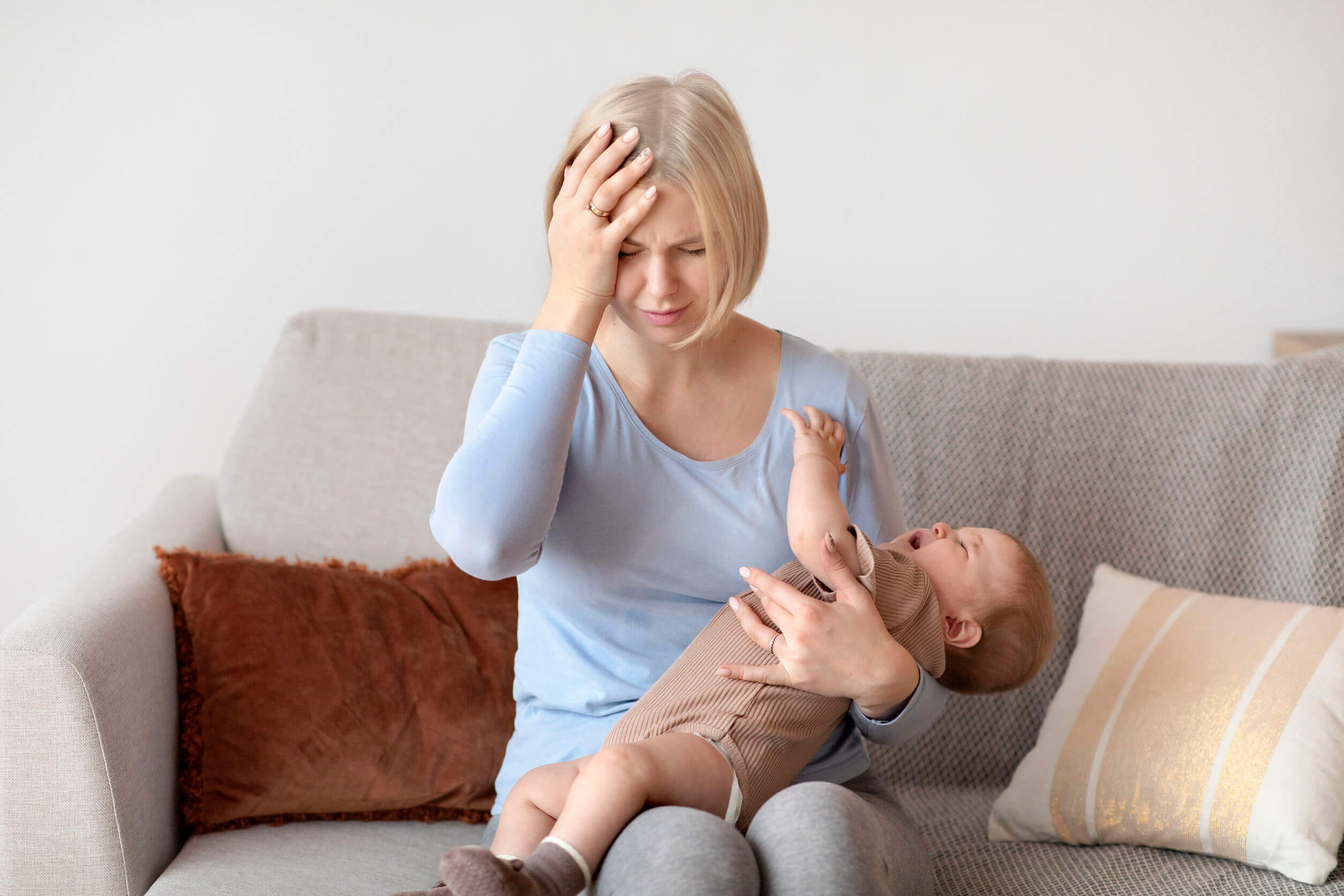Feeling Rejection Toward a Child: Why Does It Happen and How to Deal With It?


Written and verified by the psychologist Elena Sanz Martín
Motherhood is often perceived as an idyllic state full of happiness and unconditional love. But the reality is that a significant percentage of mothers fail to establish an emotional bond with their baby for various reasons. Feeling rejection toward a child generates large amounts of guilt and can cause significant emotional damage to the mother and her baby.
However, finding solutions is complicated, especially because it’s not an issue that’s usually addressed openly. Although many mothers feel this rejection, those who dare to expose it receive judgment instead of understanding and help.
But carrying this burden in silence can make it even heavier. For this reason, we want to expose the most frequent causes of this situation, so that you can understand it better and get some tools to cope with it.

Feeling rejection toward a child: Why does it happen?
When a mother feels rejection toward her child, it’s usually because the emotional bond hasn’t been properly established. This can happen for a variety of reasons, but the most common include the following.
Unplanned pregnancy
The arrival of a child radically transforms a woman’s life. There are many sacrifices and efforts that have to be made when we have another life in our care.
Not all women want to become mothers or may feel that it’s not the right time. When an unplanned pregnancy occurs, the emotional impact can make it difficult to adapt to this new role.
This isn’t only true for first-time mothers who may not have wanted to become pregnant, or at least not so soon. It can also occur in subsequent pregnancies if the woman is at a time in her life when motherhood wasn’t part of her plans.
Postpartum depression
It’s estimated that 10-20% of women suffer from postpartum depression. This is a condition that can generate fear, anxiety, crying spells, sleeping problems, isolation, fatigue, or guilt.
But, above all, it hinders the normal establishment of the bond of attachment with the baby. The fear of not being up to the task or feeling overwhelmed by the challenges of motherhood can lead to a certain rejection of the child.
Many mothers may experience these types of emotions during the two weeks following childbirth. However, if these emotions last longer, make it difficult to care for the baby, or create significant discomfort, it’s necessary to see a professional.
Expectations about motherhood
Another major reason that can lead a woman to feel rejection toward a child is unrealistic expectations about motherhood.
Many women aren’t fully aware of all that being a mother entails until they see themselves with a baby in their arms. For others, motherhood isn’t a genuine desire, but a step they take because of social pressure or with the intention of fixing their relationship problems. In these cases, when faced with reality, they may feel overwhelmed, regretful, and unable to cope with the situation.
Similarly, sometimes it’s the child’s temperament or personality that leads to rejection. A baby who’s overly demanding, cries frequently, and has difficulty eating or sleeping properly may not conform to the mother’s expectations. If, as they grow up, their personality is also not as expected, this can generate conflict in the mother.
How to act when feeling rejection toward a child?
First of all, remember that you’re not alone, as there are many mothers sharing this same feeling. Therefore, you shouldn’t feel guilty; circumstances can overtake us all at some point. However, the wound of rejection in a child can cause significant emotional damage, so it’s important that you act so that this doesn’t affect your child.

Seeing a psychologist or therapist can help you accept the new situation, adapt to motherhood, and resolve the conflicts you’re experiencing. It can also help you deal with possible postpartum depression and offer tools to alleviate fears and feelings of loneliness. Changing your perspective on motherhood and making your expectations more flexible can also help.
Keep in mind that you don’t need to face this difficult situation alone or in silence. There are professionals who can help you and your child develop a healthy emotional bond. You both deserve to feel good.
Motherhood is often perceived as an idyllic state full of happiness and unconditional love. But the reality is that a significant percentage of mothers fail to establish an emotional bond with their baby for various reasons. Feeling rejection toward a child generates large amounts of guilt and can cause significant emotional damage to the mother and her baby.
However, finding solutions is complicated, especially because it’s not an issue that’s usually addressed openly. Although many mothers feel this rejection, those who dare to expose it receive judgment instead of understanding and help.
But carrying this burden in silence can make it even heavier. For this reason, we want to expose the most frequent causes of this situation, so that you can understand it better and get some tools to cope with it.

Feeling rejection toward a child: Why does it happen?
When a mother feels rejection toward her child, it’s usually because the emotional bond hasn’t been properly established. This can happen for a variety of reasons, but the most common include the following.
Unplanned pregnancy
The arrival of a child radically transforms a woman’s life. There are many sacrifices and efforts that have to be made when we have another life in our care.
Not all women want to become mothers or may feel that it’s not the right time. When an unplanned pregnancy occurs, the emotional impact can make it difficult to adapt to this new role.
This isn’t only true for first-time mothers who may not have wanted to become pregnant, or at least not so soon. It can also occur in subsequent pregnancies if the woman is at a time in her life when motherhood wasn’t part of her plans.
Postpartum depression
It’s estimated that 10-20% of women suffer from postpartum depression. This is a condition that can generate fear, anxiety, crying spells, sleeping problems, isolation, fatigue, or guilt.
But, above all, it hinders the normal establishment of the bond of attachment with the baby. The fear of not being up to the task or feeling overwhelmed by the challenges of motherhood can lead to a certain rejection of the child.
Many mothers may experience these types of emotions during the two weeks following childbirth. However, if these emotions last longer, make it difficult to care for the baby, or create significant discomfort, it’s necessary to see a professional.
Expectations about motherhood
Another major reason that can lead a woman to feel rejection toward a child is unrealistic expectations about motherhood.
Many women aren’t fully aware of all that being a mother entails until they see themselves with a baby in their arms. For others, motherhood isn’t a genuine desire, but a step they take because of social pressure or with the intention of fixing their relationship problems. In these cases, when faced with reality, they may feel overwhelmed, regretful, and unable to cope with the situation.
Similarly, sometimes it’s the child’s temperament or personality that leads to rejection. A baby who’s overly demanding, cries frequently, and has difficulty eating or sleeping properly may not conform to the mother’s expectations. If, as they grow up, their personality is also not as expected, this can generate conflict in the mother.
How to act when feeling rejection toward a child?
First of all, remember that you’re not alone, as there are many mothers sharing this same feeling. Therefore, you shouldn’t feel guilty; circumstances can overtake us all at some point. However, the wound of rejection in a child can cause significant emotional damage, so it’s important that you act so that this doesn’t affect your child.

Seeing a psychologist or therapist can help you accept the new situation, adapt to motherhood, and resolve the conflicts you’re experiencing. It can also help you deal with possible postpartum depression and offer tools to alleviate fears and feelings of loneliness. Changing your perspective on motherhood and making your expectations more flexible can also help.
Keep in mind that you don’t need to face this difficult situation alone or in silence. There are professionals who can help you and your child develop a healthy emotional bond. You both deserve to feel good.
All cited sources were thoroughly reviewed by our team to ensure their quality, reliability, currency, and validity. The bibliography of this article was considered reliable and of academic or scientific accuracy.
- Donath, O. (2016). Madres arrepentidas: una mirada radical a la maternidad y sus falacias sociales. Reservoir Books.
- García, T. M. (2019). “¿ Existe el amor maternal? Historia del amor maternal. Siglos XVII al XX” de Elisabeth Badinter. Encrucijadas: Revista Crítica de Ciencias Sociales, (18)13. https://dialnet.unirioja.es/servlet/articulo?codigo=7247544#:~:text=Con%20esta%20obra%2C%20la%20fil%C3%B3sofa%20francesa%20Elisabeth%20Badinter,seguir%20ejerciendo%20una%20presi%C3%B3n%20extraordinaria%20sobre%20las%20mujeres.
- Genchi-Gallardo, F. J., Paredes-Juárez, S., Solano-González, N. L., Rios-Rivera, C. E., Paredes-Solís, S., & Andersson, N. (2021). Prevalencia de depresión posparto y factores asociados en usuarias de un hospital público de Acapulco, Guerrero, México. Ginecología y obstetricia de México, 89(12), 927-936. https://ginecologiayobstetricia.org.mx/articulo/prevalencia-de-depresion-posparto-y-factores-asociados-en-usuarias-de-un-hospital-publico-de-acapulco-guerrero-mexico#3
- Iyengar, U., Rajhans, P., Fonagy, P., Strathearn, L., & Kim, S. (2019). Unresolved trauma and reorganization in mothers: Attachment and neuroscience perspectives. Frontiers in psychology, 110. https://www.frontiersin.org/articles/10.3389/fpsyg.2019.00110/full
- Roncallo, C. P., Sánchez de Miguel, M., & Arranz Freijo, E. (2015). Vínculo materno-fetal: implicaciones en el desarrollo psicológico y propuesta de intervención en atención temprana. Escritos de psicología, 8(2), 14-23. https://scielo.isciii.es/scielo.php?script=sci_arttext&pid=S1989-38092015000200004
- Palomar Verea, C. (2018). Madres arrepentidas. Una mirada radical a la maternidad y sus falacias sociales. Debate feminista, 56, 110-114. https://scielo.org.mx/scielo.php?pid=S2594-066X2018000200110&script=sci_arttex
This text is provided for informational purposes only and does not replace consultation with a professional. If in doubt, consult your specialist.








